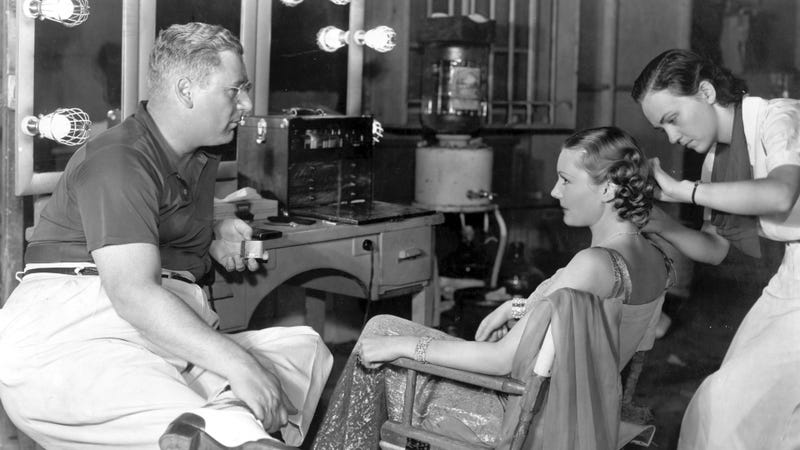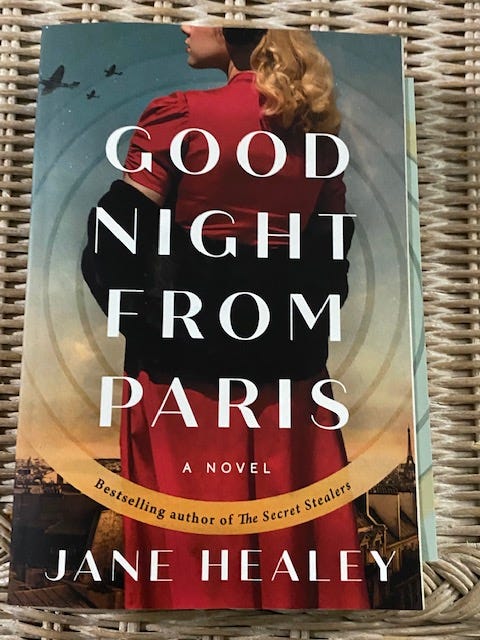
A new book recounts the true story of a real-life starlet from Hollywood’s Golden Age who found herself in the middle of World War II.
In "Goodnight From Paris," author Jane Healy recounts how Drue Leyton used her acting skills to become a heroine of the French resistance.
“It’s a really incredible, stranger than fiction story,” said Healey.
Leyton walked away from Tinseltown to marry Parisian Jacques Tartière in 1938. About a year later, he was sent to Brittany to work as a liaison for the British military. Leyton soon befriended wartime journalist Dorothy Thompson and political operative Jean Fraysse and embarked on the most dangerous role of her life.
Using the talents she honed as an actress, Leyton began broadcasting radio programs to the United States to help enlighten Americans on the situation in France and to encourage the U.S. to join the fight against the Nazis.
“She is essentially the first Voice of America, broadcasting what is really happening in Europe to an American audience,” Healey explained. “She told it like it is. She really explained what was happening at the time in Europe to Americans.”
Leyton was so good at what she was doing that Adolph Hitler himself announced that once the Nazis occupied France, she would be executed.
“At the time, people forget that America was not interested in being part of another world war,” said Healey. “They were very isolationist about their politics.”
Healey called Leyton a “complete pro.”
“She was so creative with all sorts of programming and trying to get all sorts of American ex-patriots her show,” said Healey.
Among the American ex-pats that Leyton had on her show was iconic African-American entertainer Josephine Baker.

“Josephine Baker was also involved in the Resistance, hiding secrets in her sheet music and passing it on to the Allies when she would leave the country, leave France,” said Healey.
Leyton said after Pearl Harbor, the Germans rounded up and arrested several hundred American ex-pat women who were living in and around Paris, including Leyton.
“The first prison they put them in was in a zoo outside Paris in a monkey house,” she continued. “Their friends and family, paid five francs to get into the zoo so they could yell over the fence at their loved ones who were imprisoned there.”
Healey said the two sources she relied on to capture Leyton’s voice were her autobiography and letters she wrote to her family which are now archived in the Holocaust Museum in Washington, D.C.
“I wrote the book in the first person and I was worried about capturing her voice, but I like first person because it really puts the reader in the story completely,” she explained.
Healey said one of the themes that run through all her books is that you don’t know what you are capable of until you are placed in certain situations.
“This is a woman whose life was on one trajectory and then took an incredible turn,” she said, adding that Leyton rose to the occasion.
“I wonder if the war had not happened if she would have known how brave she could be, how courageous she could be, how brilliant she could be in the work she did,” added Healey.
Healey said she had not planned on writing another World War II novel, but felt compelled to as she learned more about Leyton’s story.
“She was incredibly courageous and amazing and I had to try to tell her story,” she explained. “I really wanted to honor her and get her story right,” she said.
Healey’s books can be found on Amazon. Her website is here.
Reach Julia LeDoux at Julia@connectingvets.com.



